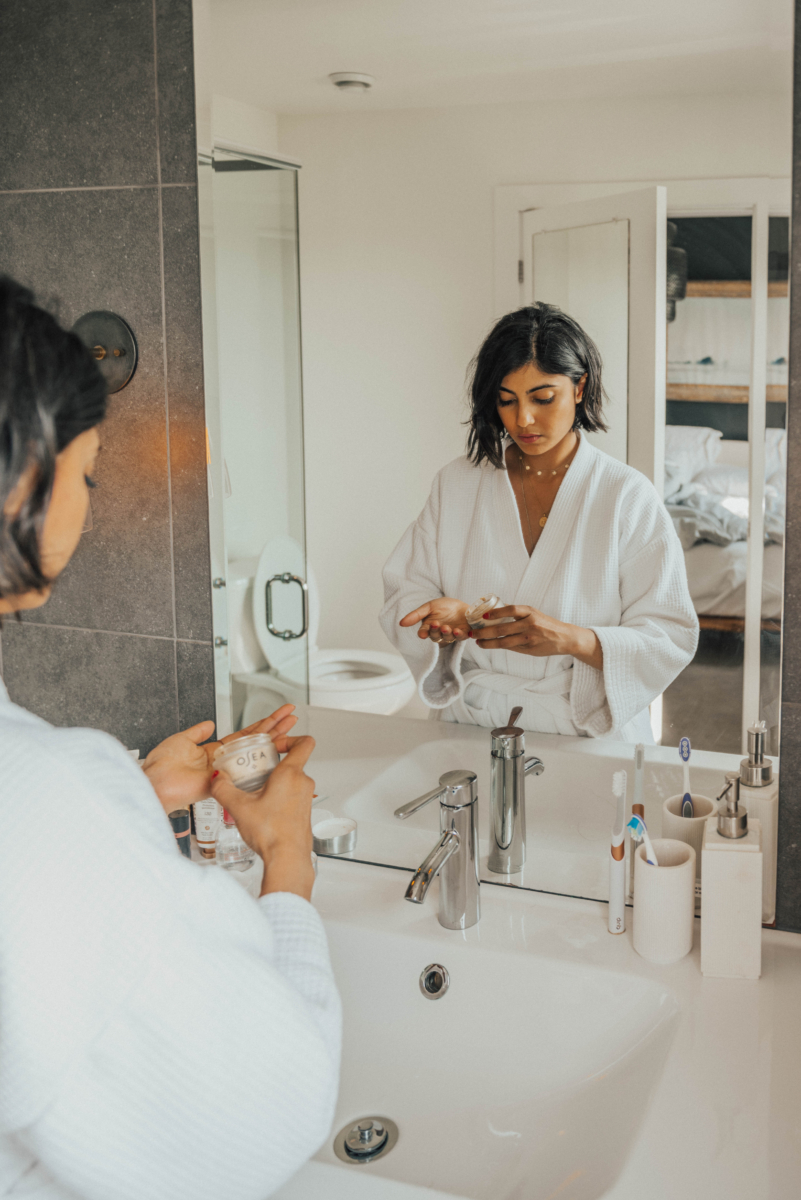
One of the wisest skincare tips I’ve been given is directly from Dr. Dennis Gross during my podcast interview with him – “the pimple you have today started last week”. So what exactly does this mean?
It means that, just like any other aspect of our skincare regime, we can be preventative when it comes to breakouts. It’s much harder to deal with pimples once they’re already in full bloom. Because not only do you have to deal with the actual inflammation and congestion, you also have to worry about scarring. However, with proper skincare diligence, you can seriously minimize your chance of getting breakouts to begin with.
Enter exfoliators. I cannot tell you the difference proper exfoliation has made for my skin. I first understood the true importance of exfoliating after reading Younger by Dr. Harold Lancer. Since I started incorporating exfoliation as part of my daily skincare routine, my skin has been radically different – tighter and brighter, with less breakouts.
So by now I’m sure you know you’re supposed to exfoliate your face. But you may have questions like, why? How often? Should I use a chemical or physical exfoliator? I’ll get into all of that today.
What Is Exfoliation?
So first things first, let’s go back to basics. Exfoliation is when you use either a physical or chemical exfoliator (more on that later), to remove the barrier of dead skin cells that sit at the surface of your face and body to reveal the fresh new skin cells below.
Our skin naturally sheds dead skin cells. They sit on the surface, ready to be removed, and if they’re not cleaned up, they can clog our pores, which in turn leads to whiteheads, blackheads, and ultimately, pimples.
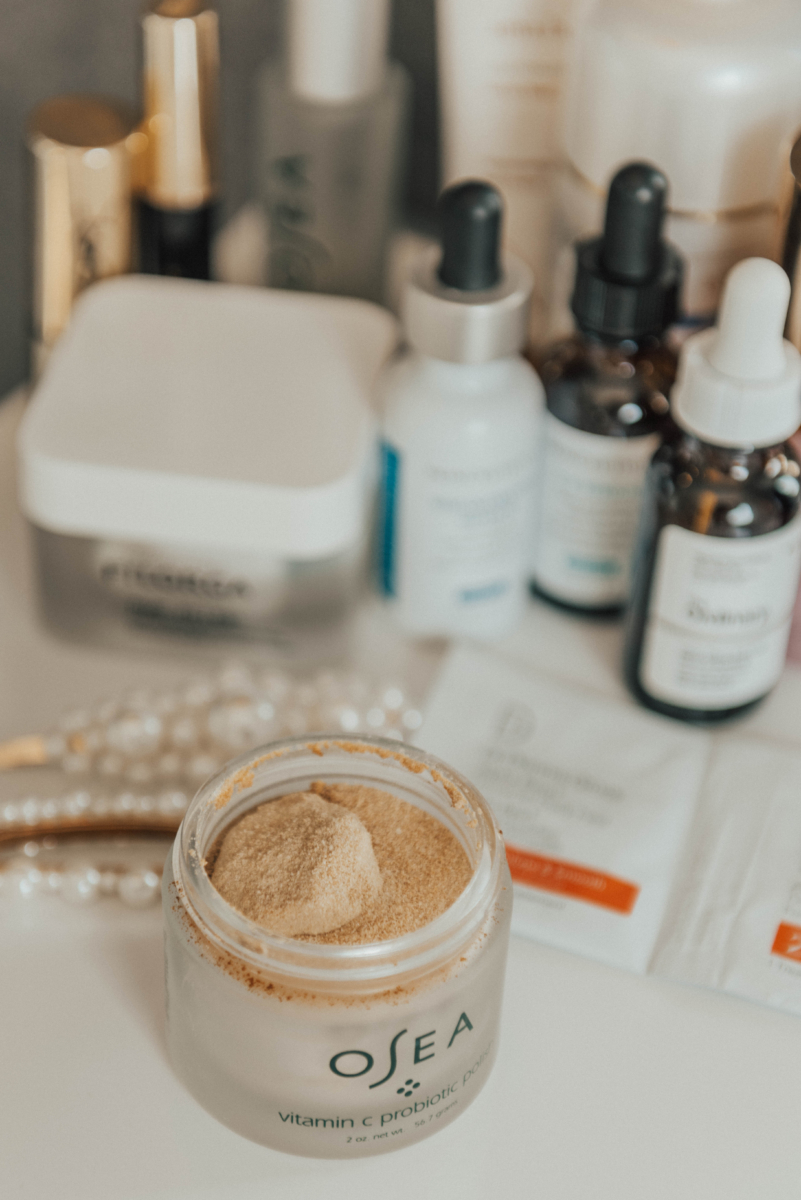
Why Should I Exfoliate My Skin?
Aside from preventing future breakouts, exfoliating makes the skin look brighter and more radiant. Think about it. The surface of your skin is covered in debris, dead skin cells and bacteria. When you exfoliate, you get rid of that and uncover the fresh new skin cells below.
Not to mention, exfoliating allows for our skin to absorb products better. It gives your serums and creams extra mileage because they can penetrate deeper.
How Often Should I do It?
Start with 1-3 times a week, graduate to every other day, and ultimately, incorporate it into your daily skincare routine.
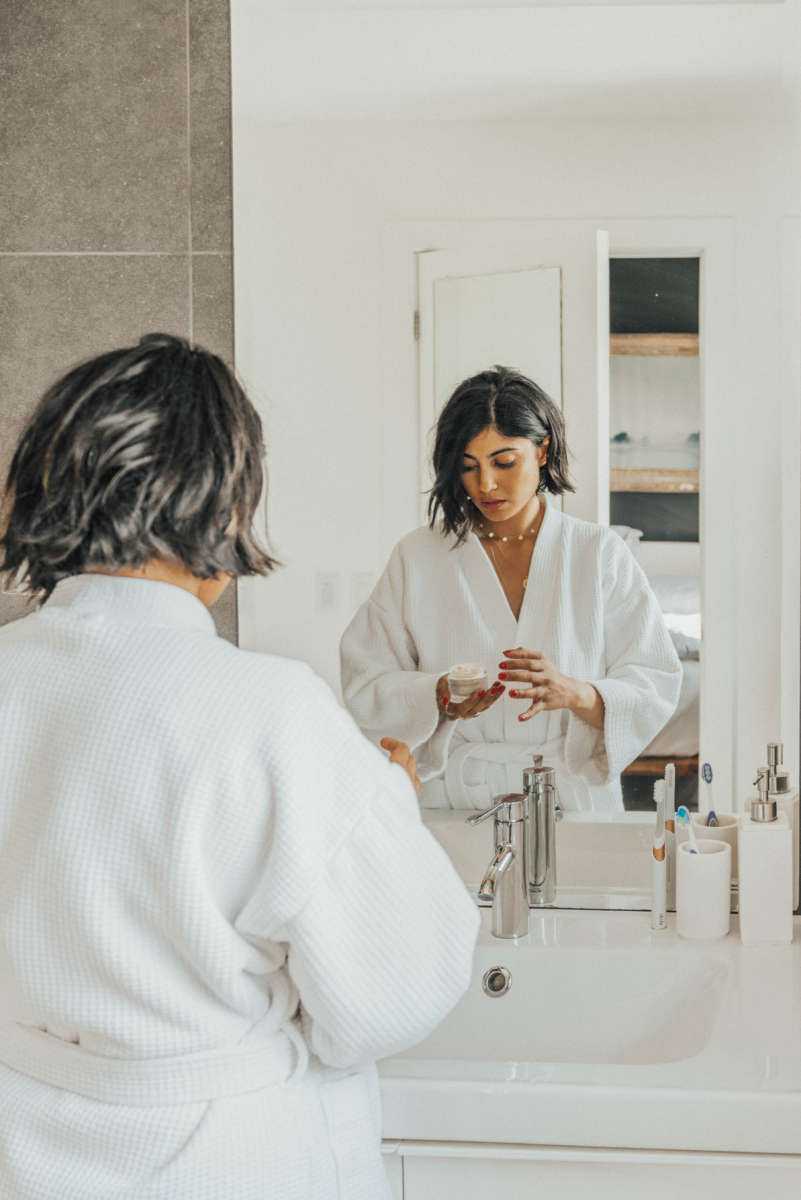
What’s The Difference Between a Chemical and Physical Exfoliator?
A chemical exfoliator is made up of acids which promote cell turnover. They penetrate the bonds that bind the dead skin cells to the fresh new ones,. They come in the form of serums, peels and masks, and address hyperpigmentation, unclog pores, reduce fine lines and refine pores.
Physical exfoliators come in the form of scrubs with actual particles which buff away the dead skin cells. Physical exfoliators help with skin’s texture and you’ll notice a visibly brighter complexion after using it. When it comes to physical exfoliators, avoid scrubs that contain fruit pits and nut granules, which can be extremely harsh on the skin and scratch the epidermus, contributing to fine lines.
What Are Your Favourites?
I love testing new products to find the best ones. Based on the ones I’ve tested, here are a few favourites:
Dr. Dennis Gross Universal Peel Pads
The number of times I’ve talked about these peel pads borders on insane. But truly, they have completely transformed my skin. Dr. Dennis Gross is one of the top skin experts of our time and I swear by his products. The peel pads come in a set of two, which are applied separately. Step One contains powerful acids which rejuvenate and gently exfoliate the skin, while Step Two delivers actives which nourish and balance skin. These peel pads also contain Resveratrol, a potent antioxidant and anti-aging polyphenol which protects the skin against free-radicals.
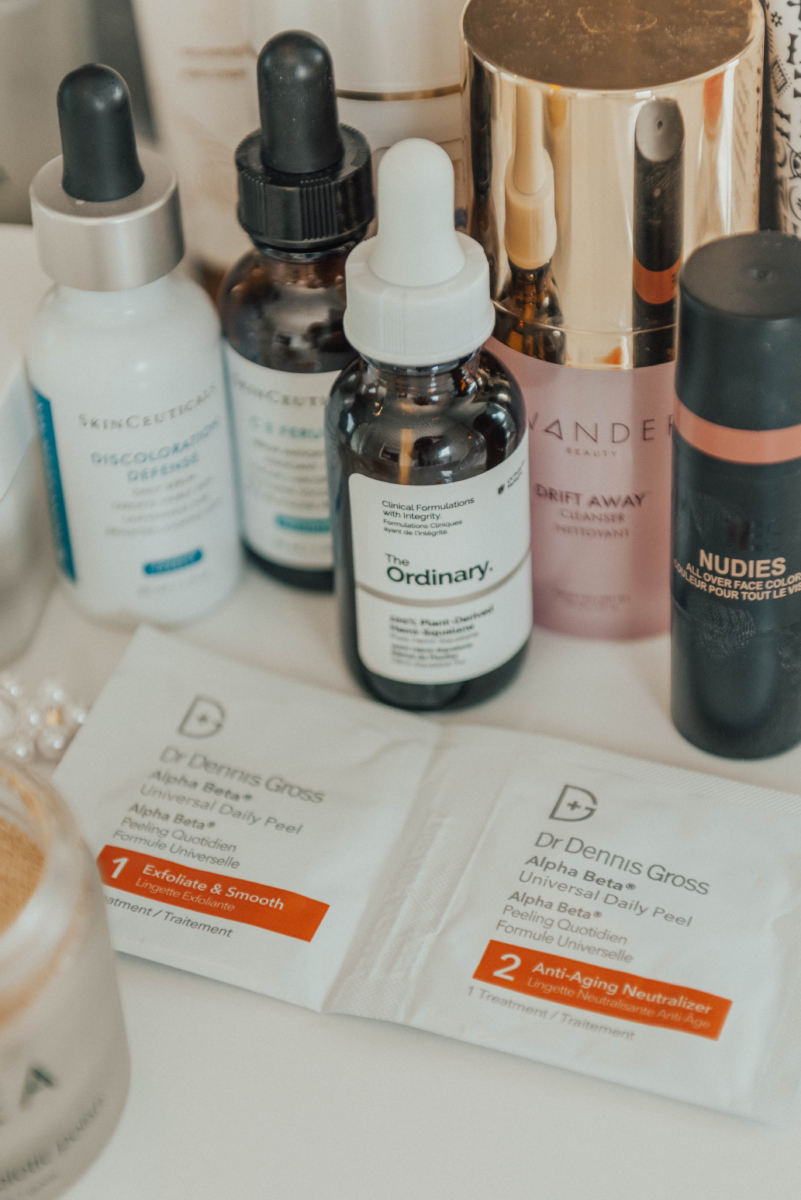
This serum is made of high potency, purified grade lactic acid which brightens, decreases the look of dark spots, and makes pores appear smaller. While you can find cheaper lactic acid alternatives on the market, the reason that products like Sunday Riley Good Genes and Dr. Dennis Gross peel pads are priced they way they are is because of the quality of acids used. It’s the quality of lactic acid that makes this product so efficacious.
Biologique Recherche Lotion P50
You can read my entire breakdown of this exfoliating toner here.
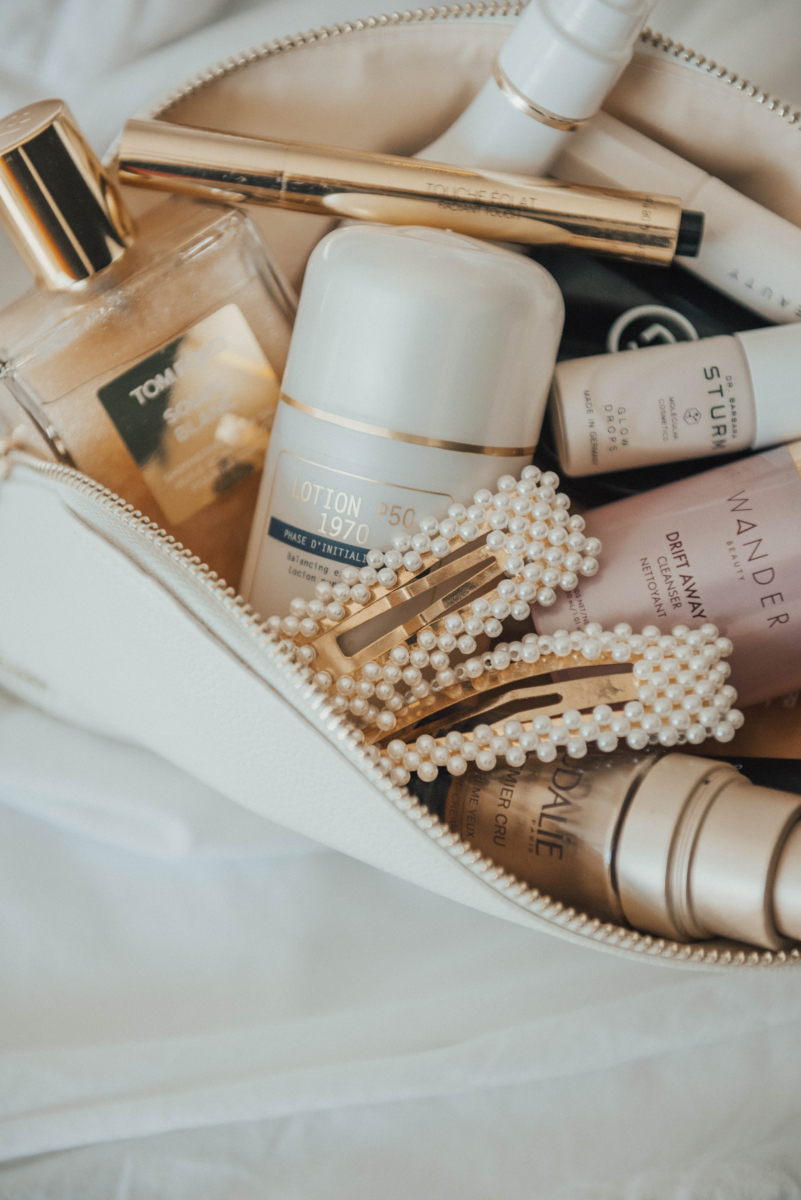
Osea Vitamin C Probiotic Polish
This physical scrub is made of finely ground organic bamboo and rice powders, enriched with mineral-rich seaweeds. Because it contains Vitamin C, it reveals visibly brighter complexion while gently polishing away dead skin cells and debris.
PS – if you liked this post, check out the quickest way to depuff your eyes and the dark spot corrector that actually works.